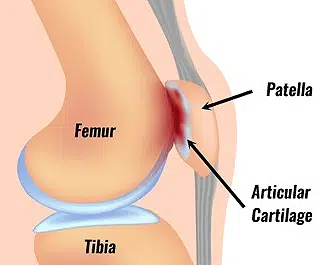Facing the prospect of joint replacement surgery can be both daunting and hopeful. Whether it's a knee, hip, or shoulder replacement, the decision to undergo such a procedure often comes after extensive consideration and consultation with healthcare professionals. One crucial step in this journey is preparing for your consultation with a joint replacement surgeon. This pivotal meeting serves as an opportunity to gather information, ask questions, and gain clarity about your treatment options.
Here's a comprehensive guide on how to make the most out of your consultation.
- Do Your Research: Before your appointment, take some time to research your condition, the various types of joint replacement surgeries available, and the potential risks and benefits associated with each procedure. Understanding the basics will empower you to have a more meaningful conversation with your surgeon and ask informed questions.
- Compile Your Medical History: Gather all relevant medical records, including previous surgeries, imaging scans (such as X-rays or MRIs), and medication lists. Your surgeon will need this information to assess your condition accurately and determine the most suitable treatment plan.
- List Your Symptoms and Concerns: Make a list of all the symptoms you're experiencing, including pain levels, stiffness, mobility limitations, and any activities that exacerbate your discomfort. Additionally, jot down any questions or concerns you have about the surgery, recovery process, potential complications, and long-term outcomes. Having these written down ensures that you don't forget anything during your consultation.
- Bring a Supportive Companion: Consider bringing a trusted friend or family member with you to the consultation. They can provide emotional support, help you remember important details discussed during the appointment, and offer a different perspective on the information presented.
- Discuss Lifestyle Factors: Be prepared to discuss your lifestyle and activity level with the surgeon. They may inquire about your occupation, hobbies, exercise routines, and any adjustments you're willing to make post-surgery. This information will help them tailor the treatment plan to suit your individual needs and goals.
- Ask About Alternatives: Inquire about alternative treatment options besides surgery, such as physical therapy, medications, or minimally invasive procedures. Your surgeon should be open to discussing all available options and helping you weigh the pros and cons of each approach.
- Clarify Expectations: Have a candid discussion with your surgeon about your expectations for the surgery and the outcomes you hope to achieve. Realistic expectations are crucial for a successful joint replacement journey, so be open to hearing your surgeon's perspective on what can be realistically accomplished.
- Review the Logistics: Before concluding the consultation, make sure to address logistical details such as scheduling the surgery, pre-operative testing requirements, insurance coverage, and post-operative care plans. Understanding the timeline and logistics involved will help you prepare both mentally and practically for the procedure.
Conclusion:
Preparing for a consultation with a joint replacement surgeon is a crucial step in your journey towards improved mobility and quality of life. By doing your research, compiling your medical history, listing your symptoms and concerns, bringing a supportive companion, discussing lifestyle factors, exploring alternative options, clarifying expectations, and reviewing logistical details, you'll be better equipped to make informed decisions about your treatment plan. Remember, your surgeon is there to guide you through this process and address any questions or uncertainties you may have. Together, you can embark on this journey towards a healthier and more active future.






Comments